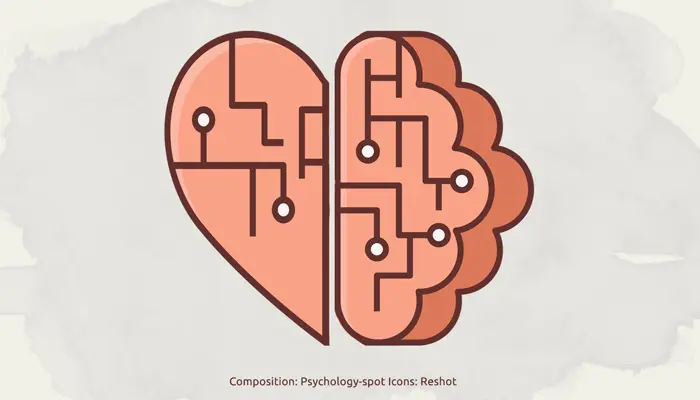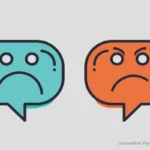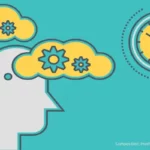
What is the most important thing in your life?
What is it that gives meaning to your existence?
When you have the answer, ask yourself how much time you have spent in recent months on what is so important and significant to you. You may be surprised to discover that the most important thing in your life is not your priority, or at least you do not dedicate enough time to it.
You may also discover that you are trapped in a sea of duties and obligations, that every day you do what you should and not what you want or desire. You may also find that your heart says one thing, but your mind dictates another.
This lack of coherence between what you feel and want and what you actually do generates dissatisfaction, frustration and regret. Feeling divided and realizing that desires and feelings go on one side while behaviors and habits go on the other, generates a deep inner conflict.
A life full of commitments and sacrifices is not the best way to develop the different roles you assume. That way, when you’re at work, you’ll feel guilty about not spending enough time with your family, but when you’re home, you’ll be worrying about unfinished work-tasks. So your mind will always be elsewhere. You will never be fully present. And before you know it, life will be over.
To solve this inconsistency, you have to develop emotional integrity.
What is emotional integrity?
The more aware you are of your feelings, the more likely you are to manage your emotions intelligently and assertively. Therefore, you will feel more satisfied with the life you lead, which will increase your emotional well-being. However, to achieve this there is an essential requirement: emotional integrity.
The concept of emotional integrity refers to the courage to recognize our true feelings, wishes and desires without judging them through the lens of society. In essence, it is being completely honest with oneself by acknowledging our emotions, impulses and dreams.
Emotional integrity also implies staying true to those affective states, being able to express them assertively and coherently in our daily lives. It is, therefore, about recognizing what we feel – whether it is pleasant or not – and being faithful to it, despite what others may say or think.
Unfortunately, emotional integrity is an underrated and underdeveloped skill. Every time a close person asks us how we are doing, for example, and we respond with a terse “fine”, even though we are in tatters inside, we turn our backs on emotional integrity.
When we dare not pursue a dream or even identify what is holding us back, we lack emotional integrity. When we get stuck in relationships and situations that make us uncomfortable, simply because we don’t have the courage to admit that it’s not what we want, we also forget about emotional integrity.
What is an emotionally whole person like?
People who have developed their emotional integrity have some characteristics in common:
– They are honest about their feelings, desires and dreams, both with themselves and with others.
– They are not ashamed of their emotions and feelings, nor do they recriminate or blame others for what they feel, since they assume responsibility for their affective states.
– They develop an emotional self-awareness that allows them to understand the origin of their feelings and detect dysfunctional automatic response patterns.
– They face uncomfortable or painful truths, being aware of their shadows, limitations and vulnerabilities.
– They pay attention to their emotional needs and try to satisfy them assertively, without harming others or themselves.
– They plan their lives in such a way that the really important and meaningful things from the emotional point of view take center stage.
How to develop emotional integrity without dying trying?
We live in a society that represses emotions, especially those classified as “negative”, so it is understandable that most people believe that they cannot “afford” to express what they feel.
In fact, a study conducted in India revealed that those who live in cities develop less emotional integrity than people who live in communities in natural settings. For this reason, the first step to develop emotional integrity is to distance yourself from social opinions about the affective sphere and stop classifying emotions and feelings as “bad” or “good”.
Robert Solomon stated that emotional integrity implies living fully, in full color. For this philosopher, life contains both the red of fury and the yellow of joy, the light blue of moments of happiness and the green of disgust. A life worth living is colorful, which not only implies experiencing and accepting emotions of different colors, but also of different shades and with various intensities. Solomon believed that the opposite of emotional integrity is precisely a monotonous and monochromatic life.
We must understand that if we feel guilty about what we feel, we will have a tendency to repress and hide those feelings, even from ourselves, which prevents us from being emotionally honest. Instead, we need to learn to accept what we feel and want, without judging it. That open attitude is the pillar on which emotional honesty is based.
Of course, this phase can be painful since it often involves discovering inner shadows, aspects of ourselves that we had conveniently kept hidden because they were not well seen socially. At this stage you may discover, for example, that the way you have structured your life meets social standards and makes others happy, but it does not meet your deepest desires and aspirations or make you happy.
In a second moment we will have to ask ourselves difficult questions that allow us to pivot in life. Just keep in mind that there are no right or wrong answers. It is about connecting with what you feel and desire, that part of you that you have kept quiet for a long time. Acknowledge your needs, wants, drives, and ambitions without any judgment or blame. That emotional honesty will become a solid foundation on which to make better decisions to more clearly determine your goals and behaviors.
Finally, we must apply emotional integrity to our daily lives. Starting with little things. When someone close asks you how you are, for example, you can answer sincerely. It is true that emotional honesty shows your vulnerability, but do not forget that it also serves to create stronger emotional bonds.
Applying emotional integrity also implies rethinking your daily work to make room for those things that are most important to you and give you authentic satisfaction because they are in tune with your dreams and desires. Make a list of what you really want from your life.
Imagine the life you want to live, think about what you want to achieve and visualize the impact of what you desire. Then, apply reverse engineering to make decisions that help you have the life you want, instead of limiting yourself to sacrificing your dreams, emotions and illusions on the altar of duty.
Sources:
Kumari, R. (2018 ) Comparative Study of Social Appreciations Ability, Social Emotional Integrity of Rural Area and Urban Area Working Women of Himachal Pradesh. International Journal of Management and Applied Science; 4(2): 80-83.
Solomon, R. (2007) Ética emocional. Una teoría de los sentimientos. Barcelona: Paidós Ibérica.



